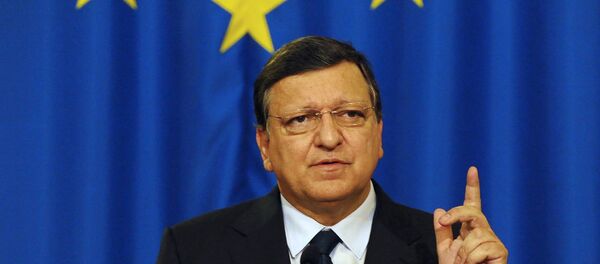The report, People and Corruption: Europe and Central Asia, shows a correlation between people's perception of political corruption and the rise in populism and nationalism, particularly in Spain, Portugal, Netherlands, Belgium, France, Italy and Poland.
"From Spain to the UK and Turkey, support for populist and nationalist movements is on the rise in Europe and Central Asia. While the reasons are manifold and complex, corruption is central to the story — both the failure of governments to properly address corruption and their complicity in corrupt or clientelist schemes," the report says.
What's the truth behind the image of the corrupt elite? https://t.co/1G5rXiEHZu pic.twitter.com/9xYnEfxpE7
— Transparency Int. EU (@TI_EU) 18 November 2016
"Governments are simply not doing enough to tackle corruption because individuals at the top are benefiting. To end this deeply troubling relationship between wealth, power and corruption, governments must require higher levels of transparency, including around who owns and controls companies through public beneficial ownership registries," Jose Ugaz, Chair of Transparency International said.
The report found that one in three citizens in in the region think corruption is one of the biggest problems facing their country. People are also highly dissatisfied with the way governments are tackling the corruption risk in Europe. Over half (53 percent) said that their government is doing badly at fighting corruption, while less than a quarter (23 percent) say that they are doing well.
What's the truth behind the image of the corrupt elite? And what should the EU do? https://t.co/1G5rXin6AU #Trump #brexit #LePen pic.twitter.com/T6vVZ4MZj2
— Transparency Int. EU (@TI_EU) November 18, 2016
"By their very positions at the top of the power pyramid, corrupt elites and oligarchs are hard to remove. But we have seen that it can be done if people stand together to demand higher standards from their leaders and the judiciary acts independently to hold them to account," said Ugaz.
Revolving Doors, Tax Havens
The report comes as European Commission President Jean Claude Juncker sets out his proposals to bring about more transparency within the EU over the work of commissioners, following the scandal over former Commission President Jose Manuel Barroso, who was appointed non-executive chairman of Goldman Sachs International only 20 months after leaving office. The move was seen as another example of the revolving doors of power in Brussels.
The Barroso case is similar to that of Austria's former European Commissioner Benita Ferrero-Waldner who took a job with Spanish wind turbine exporter Gamesa the same month she had quit the Commission in 2010.
There was also criticism that former Dutch Commissioner Neelie Kroes was found to have been the director of a company that was established in 2000 in the Bahamas to be the vehicle for a proposed deal to acquire some of energy company Enron's assets. She had not declared that directorship when becoming a commissioner.



